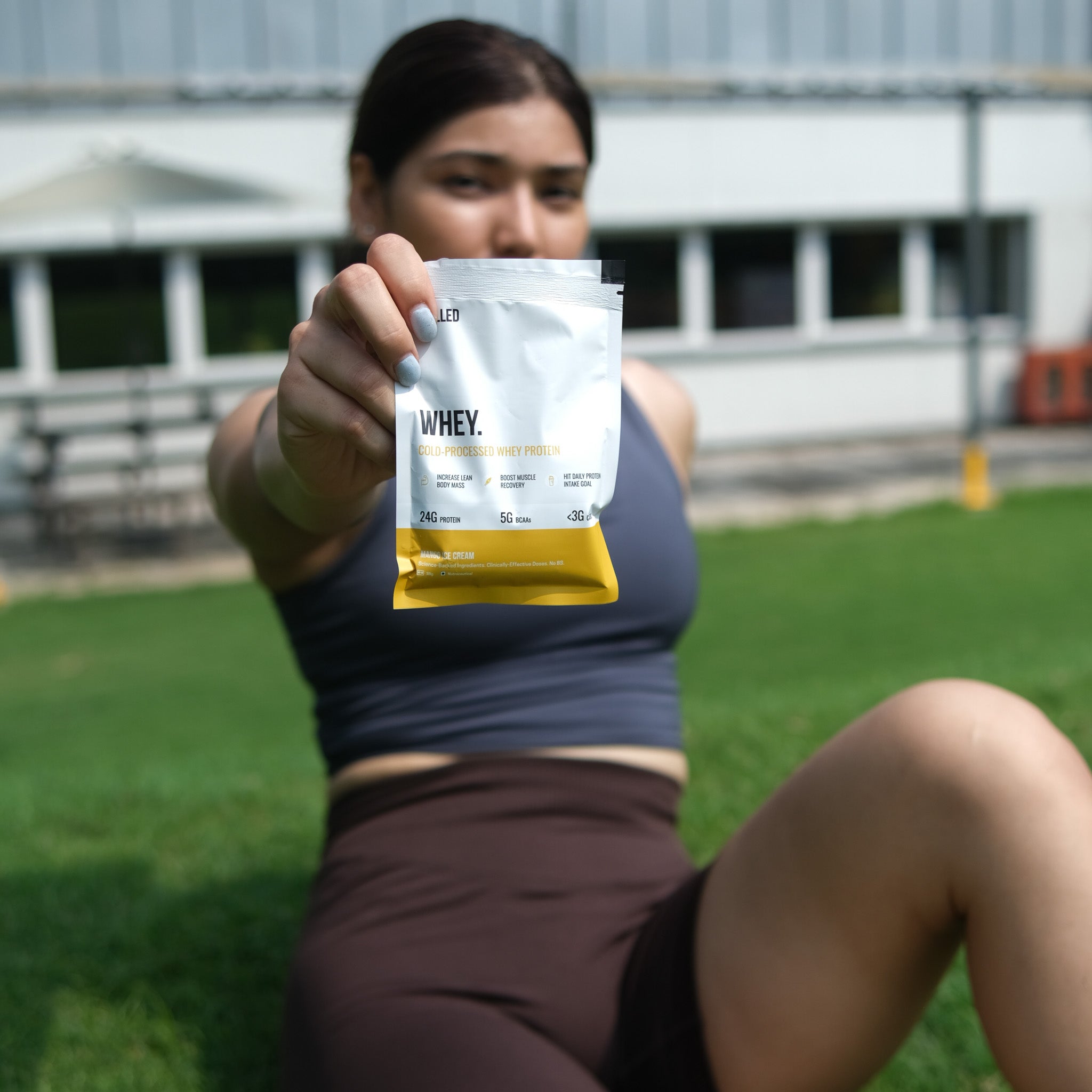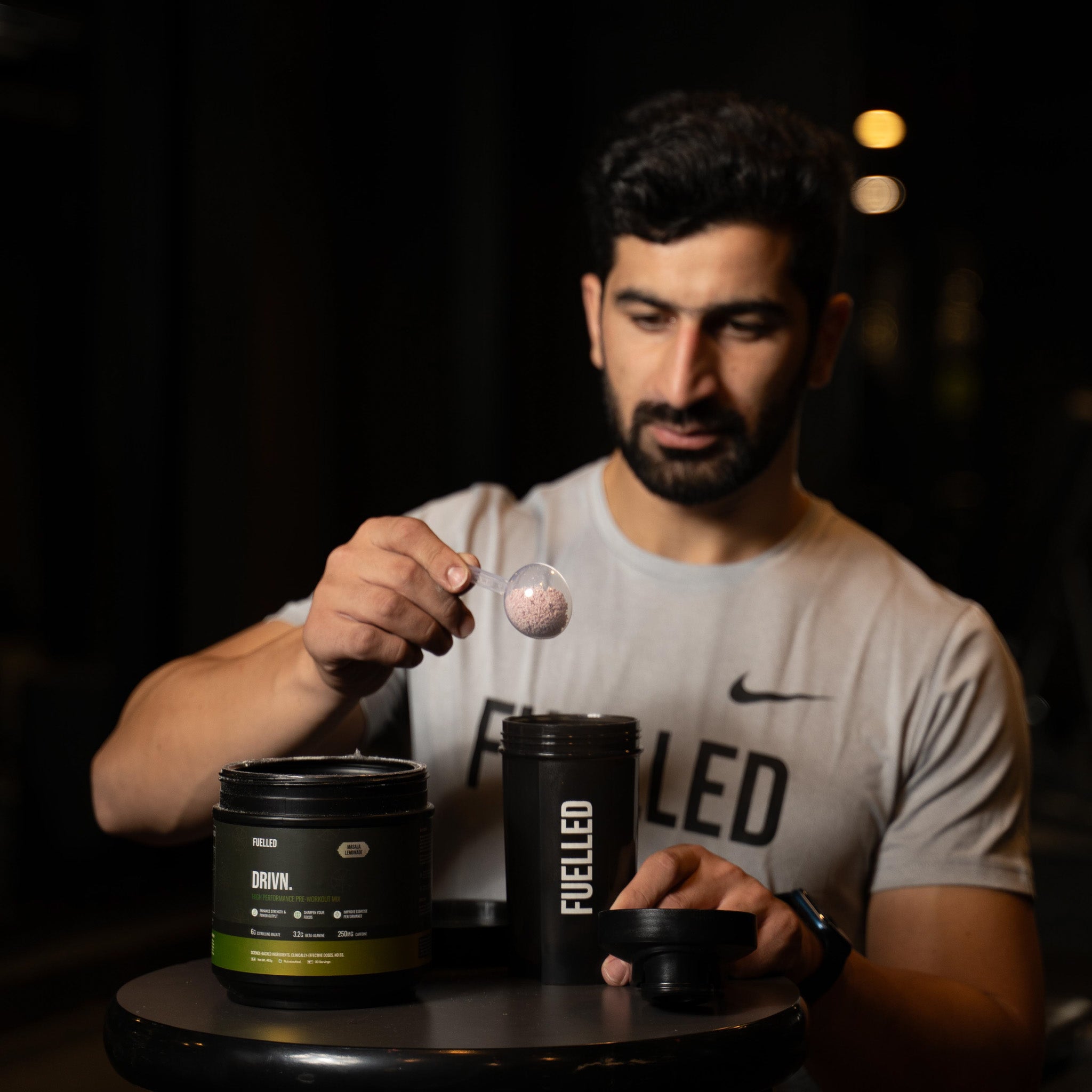Creatine
Creatine
Introduction: Demystifying Creatine
In the realm of sports supplements, creatine stands tall as a powerhouse, a natural compound that has earned its stripes in enhancing athletic performance. Let's delve into the comprehensive guide that unfolds the science, benefits, and nuances of creatine, empowering you to make informed choices on your fitness journey.
What is Creatine?
Creatine is a nitrogenous organic acid found in small quantities in various foods and synthesised within the body, primarily in the liver, kidneys, and pancreas. It plays a crucial role in the production of adenosine triphosphate (ATP), the energy currency of cells, making it a cornerstone in the energy metabolism of muscle cells.
Creatine and Muscle Growth
Creatine, a naturally occurring compound in the body, plays a pivotal role in muscle growth through several scientifically validated mechanisms.
First, it facilitates the rapid regeneration of adenosine triphosphate (ATP), the primary energy currency of cells, particularly during short bursts of high-intensity exercise. This heightened ATP availability allows for more significant and sustained muscle contractions during resistance training, promoting increased workload and, consequently, muscle hypertrophy.
Secondly, creatine induces cellular hydration by drawing water into muscle cells, enhancing cell volume and creating an optimal environment for protein synthesis. Furthermore, creatine has demonstrated anti-catabolic properties, minimising muscle protein breakdown, and promoting a positive protein balance crucial for muscle growth.
Additionally, creatine's involvement in phosphocreatine resynthesis ensures a quick and efficient energy supply during subsequent bouts of intense exercise, supporting overall training volume and intensity. These cumulative effects make creatine a scientifically supported and widely recognized ergogenic aid in fostering muscle growth and enhancing athletic performance.
Benefits of Creatine: Fueling Success in Sports and Fitness
- Increased ATP Production: Creatine supplementation elevates phosphocreatine stores in muscles, supporting rapid ATP regeneration. This translates to improved energy availability during short, intense bursts of activity.
- Enhanced Strength and Power: Numerous studies showcase creatine's effectiveness in boosting strength and power, making it a go-to for athletes involved in high-intensity activities like weightlifting, sprinting, and high-intensity interval training (HIIT).
- Improved Muscle Recovery: Creatine has demonstrated anti-inflammatory properties, aiding in the reduction of muscle cell damage and promoting quicker recovery post-exercise.
- Cell Hydration: Creatine draws water into muscle cells, increasing cell volume and contributing to a favourable environment for muscle growth. This cell hydration also supports improved exercise performance.
- Cognitive Benefits: Emerging research suggests that creatine may have cognitive-enhancing effects, potentially benefiting activities that require short-term memory and quick decision-making.
Myths Surrounding Creatine: Setting the Record Straight
- Creatine Causes Dehydration and Cramping: Scientific evidence suggests that creatine does not cause dehydration or increase the risk of muscle cramps when used as directed.
- Creatine Is Only for Bodybuilders: Creatine benefits a diverse range of athletes, from sprinters to football players, by enhancing performance in high-intensity, short-duration activities.
- Creatine Must Be Loaded for Results: While some opt for a loading phase, studies show that a steady, lower-dose supplementation approach can achieve similar results without the initial loading phase.
- Creatine Causes Kidney Damage: Numerous studies, including long-term research, have shown that creatine supplementation does not pose a risk to kidney health when used within recommended doses.
- Creatine Causes Water Retention and Weight Gain: While creatine does promote cellular hydration, many studies debunk the notion that this leads to excessive water retention or undesirable weight gain. The effects are generally modest and contribute positively to muscle volume.
Types of Creatine: Exploring the Options
- Creatine Monohydrate: The most researched and widely used form, creatine monohydrate is cost-effective and has a substantial body of evidence supporting its efficacy. Fuelled Creatine is 100% Creatine Monohydrate with no junk or additives.
- Creatine Hydrochloride (HCL): Marketed as having better solubility and absorption, creatine HCL may be beneficial for those who experience gastrointestinal discomfort with creatine monohydrate.
- Buffered Creatine: Combining creatine with an alkaline substance, buffered creatine aims to reduce the conversion of creatine to creatinine, potentially improving absorption.
- Creatine Ethyl Ester: Marketed for enhanced absorption, research on creatine ethyl ester is limited, and it may not offer significant advantages over creatine monohydrate.
How to Take Creatine: Timing and Dosage Guidelines
- Loading Phase: While a loading phase (20 grams per day) can saturate muscle creatine stores faster, a maintenance phase (3–5 grams per day) can achieve similar results over a more extended period without loading.
- Timing: Creatine can be taken at any time, but post-exercise consumption may enhance uptake due to increased blood flow to muscles.
- Combining with Carbohydrates: Consuming creatine with carbohydrates may enhance its uptake by promoting insulin release, facilitating creatine transport into muscle cells.
- Individual Response: Individual responses to creatine can vary, so it's advisable to experiment with timing and dosages to find what works best for you.
Creatine and Special Populations: Safe for All?
Creatine stands as one of the most researched and well-established supplements, consistently proving its safety across diverse populations. Extensive scientific studies, spanning various age groups and health conditions, affirm the safety of creatine supplementation.
Its well-documented track record includes safety for vegetarians, older adults, youth athletes, and individuals with various medical conditions. Creatine's safety is further underscored by its natural occurrence in the body and its fundamental role in energy metabolism. Rigorous testing and a wealth of conclusive research make creatine a reliable and safe choice for individuals seeking to optimise their fitness and performance levels.
Selecting the Right Creatine: Navigating the Options
- Purity and Quality: Opt for brands like Fuelled that adhere to good manufacturing practices (GMP) and have their products tested by third-party organisations for purity and quality.
- Micronized Creatine: Micronization improves creatine's solubility and absorption, making it a favourable choice for ease of use.
- Flavour and Form: Creatine is available in various forms, including powder, capsules, and flavoured options. Choose a form that aligns with your preferences and lifestyle.
Why You Should Consider Having Creatine
There is a lot of stigma surrounding Creatine, but the reality is that it is a safe, well-researched and scientifically proven supplement that helps anyone build muscle mass when combined with a consistent exercise regime. Here are the top 5 reasons to have it:
- Enhanced Strength and Power: Amplify your lifts and intensify your workouts with the proven ability of creatine to boost phosphocreatine stores, facilitating rapid ATP regeneration.
- Increased Muscle Volume and Hypertrophy: Fuel muscle growth and sculpt your physique as creatine promotes cellular hydration, creating an optimal environment for hypertrophy.
- Improved Exercise Performance: Take your training to new heights with creatine's support for higher training volumes, especially beneficial for activities demanding immediate energy availability.
- Quicker Recovery and Reduced Muscle Soreness: Recover faster between sessions and say goodbye to post-exercise soreness as creatine showcases anti-inflammatory properties.
- Cognitive Benefits and Overall Health: Beyond the gym, creatine offers cognitive enhancements and contributes to overall health, making it a holistic addition to your fitness journey.






